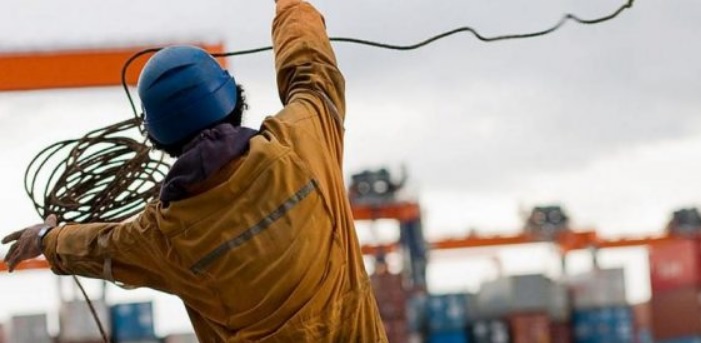The Seafarers’ Rights International (SRI), a global authority on maritime and seafarers’ law, has released groundbreaking research highlighting significant challenges in the global enforcement of the Maritime Labour Convention (MLC). While the Convention has seen substantial achievements in its implementation, the study reveals uneven and insufficient enforcement across different jurisdictions.
The findings underscore that despite widespread ratification and broad coverage of global tonnage, the MLC’s implementation success rate is approximately 65% globally. The report includes a Table of Indicators that evaluates individual States’ enforcement efforts, shedding light on discrepancies and gaps in compliance.
Key findings and areas for improvement
According to the survey, the top seafarer concerns included:
- Skills training: Over 80% of respondents referred to the need for upskilling and reskilling on hard skills such as digital technologies, ship automation, and green fuels, as well as soft skills like leadership and resource management.
- MLC training: Approximately 70% expressed a desire for more training about their rights and responsibilities under the MLC.
- Training on legal risks: Seafarers highlighted the need for training to avoid detention or criminal charges, particularly concerning local legal risks when entering foreign ports.
- Fatigue and work hours: Fatigue remains a significant issue, with 58.3% of respondents reporting experiences of fatigue on board, and 50.6% identifying it as a safety risk to themselves or the vessel.
- Higher wages and job security: Seafarers called for better wages and permanent contracts amid economic uncertainties.
Notably, while 80% of surveyed seafarers had access to onboard complaint procedures, only 17% had utilized them to lodge an MLC-related complaint.
Amendments to take effect December 23, 2024
Adding urgency to the discussion, amendments to the MLC 2006, adopted at the ILO’s 110th session, took effect on December 23rd , 2024. These amendments address key areas such as:
- Recruitment and placement: Strengthening regulations to ensure fair and ethical recruitment practices.
- Repatriation: Enhancing provisions for timely and cost-free repatriation.
- Recreational facilities: Expanding access to internet services onboard and at ports.
- Food and catering: Ensuring quality standards and improved conditions.
- Medical disembarkation: Mandating immediate disembarkation for seafarers requiring urgent medical attention.
Deirdre Fitzpatrick, Executive Director of SRI, stressed the importance of addressing enforcement challenges: “The high level of ratifications and the high percentage of coverage of world tonnage could lead to the view that the MLC is widely effective around the world. But the research shows a different reality and points to where more efforts are needed to address the gaps in the effectiveness of the MLC. The MLC has not yet achieved a single international level playing field.”
Moving forward
To enhance the effectiveness of the MLC, stakeholders must prioritize:
- Building state capacity: Providing resources and training to ensure States can enforce MLC provisions effectively.
- Fostering awareness: Encouraging collaboration and knowledge-sharing among industry stakeholders to improve compliance.
- Updating frameworks: Adapting the MLC to address emerging challenges such as Maritime Autonomous Surface Ships (MASS) and Environmental, Social, and Governance (ESG) requirements.
The MLC remains a cornerstone of international maritime regulation, safeguarding seafarers’ rights and promoting fair labor practices. However, the findings from SRI’s research, combined with the 2024 amendments, highlight the ongoing need for global collaboration to address enforcement gaps. Policymakers, industry leaders, and international organizations must work together to achieve the MLC’s vision of a fair and equitable maritime industry.


























































